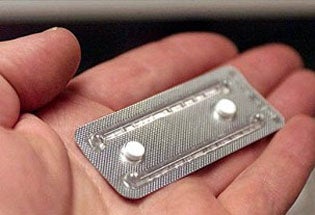Liz Hoggard: A morning-after pill is best served without a sermon
I don't expect my pharmacist to impose his or her private scruples

Your support helps us to tell the story
From reproductive rights to climate change to Big Tech, The Independent is on the ground when the story is developing. Whether it's investigating the financials of Elon Musk's pro-Trump PAC or producing our latest documentary, 'The A Word', which shines a light on the American women fighting for reproductive rights, we know how important it is to parse out the facts from the messaging.
At such a critical moment in US history, we need reporters on the ground. Your donation allows us to keep sending journalists to speak to both sides of the story.
The Independent is trusted by Americans across the entire political spectrum. And unlike many other quality news outlets, we choose not to lock Americans out of our reporting and analysis with paywalls. We believe quality journalism should be available to everyone, paid for by those who can afford it.
Your support makes all the difference.I adore the old-fashioned pharmacy. The place that sells everything from Mason Pearson hair brushes to rose water and proper scents. In summer, I spend hours buying plasters and dressings for feet cruelly betrayed by new sandals. In winter, I lurk around the homeopathic flu remedies. A great pharmacist is an asset to any local neighbourhood.
Part psychologist, part confessor, they give advice about diet, exercise and stress; help patients manage conditions from diabetes and asthma to high blood pressure, and discreetly answer questions about side effects to different drugs. We all know of times when a quick-witted pharmacist has spotted a clinical error made by a frazzled GP. Or raised concerns when a customer returns for a repeat prescription just a little too often. They are highly trained experts (all qualifying pharmacy courses are at Masters degree level and last four years). But I don't expect my pharmacist to impose his or her private moral scruples on me, the customer.
You can now buy the morning-after pill from a pharmacy without a prescription. But at the moment, pharmacists are able to decline services with which they disagree on moral or religious grounds. A significant number, mainly Christians and Muslims, refuse women the morning-after pill because they believe it is a form of abortion. I can't be the only one who has witnessed a distressed young woman brusquely told by a pharmacist that they can't help with emergency contraception. Or sent away, like a naughty child, to another pharmacy, one which (by implication) has laxer morals.
This goes against the idea of the pharmacy as a great democratic space, where we can ask a neutral guide questions about how our bodies do – or don't – work, without feeling embarrassed or bullied. If we are to be kind to ourselves, we need somewhere to buy Imodium and Tampax and corn plasters without feeling marginalised.
Levonelle 1500, the medicine currently used in the UK for the morning-after pill, needs to be taken 72 hours after sex. So the clock is ticking. Unsurprisingly, calls for the "conscience clause" to be scrapped have come from pharmacists themselves as well as groups such as the National Secular Society. In response, the Council for Healthcare Regulatory Excellence, a government quango that oversees the health professions, is asking whether the practice should continue. The consultation, which ends on 12 January, is part of plans to set up a new General Pharmaceutical Council to regulate the profession.
Predictably, conservative campaigners (who range from anti-abortionists to members of the Church of England) are up in arms about the potential scrapping of pharmacists' "right to say no". Some evangelical types even reject the idea of making an immediate referral to an appropriate alternative dispensing pharmacy – to help the customer – because they argue it's the same as forcing them to fill prescriptions that violate their beliefs.
Yet whatever your conscience, you should not have the right to refuse to dispense the morning-after pill, or any form of over-the-counter legal contraception. We have rights and expectations as health service users. Any doctor or pharmacist who refuses is not doing their duty. It is not up to the prescriber, or the dispenser: the matter rests with the patient. We already have the most teenage pregnancies in Western Europe. I don't want more young women feeling confused and desperate, or having unprotected sex because they are too embarrassed to ask about barrier contraception. A fragile group, who may have other problems in their lives, need better access to information. Not less.
In an age of Tesco-ification and mega chemists, I feel passionately about supporting independent and family-owned pharmacies. I don't want us buying online from dubious pharmaceutical wholesalers in America because we are too embarrassed to walk into a normal shop. Or getting prescription pads on the black market because it cuts out the moralistic middle man – or woman.
Private faith matters. I'm sure many are inspired to join caring professions because of their own compassionate beliefs. But we need help, too. If you don't want to deal with complex, messy human life, then please don't. If the way we love and work – and build alternative families – offends you, please don't become a key service worker. A job in a registry office that conducts same-sex civil partnerships may not be for you. Don't open a hotel or a B&B if you think you will want to turn away certain sections of the community. And most of all, please don't become a pharmacist. It's a job I value far too much.
Join our commenting forum
Join thought-provoking conversations, follow other Independent readers and see their replies
Comments